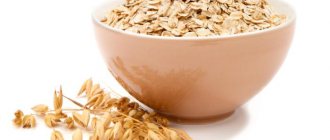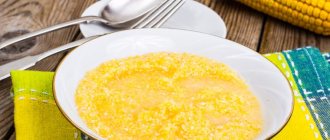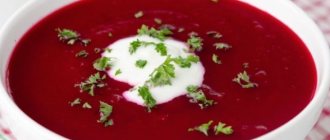The body of a nursing mother needs a certain set of nutrients. They will restore her general condition after childbirth, help the baby gain weight, and improve immunity. Pediatricians do not recommend eating exotic vegetables and fruits during this period. Their components pass into breast milk. The child’s body does not always react positively to exotic things. Rare exceptions include pomegranates during breastfeeding. Possessing a rich composition, pomegranate can help mother and baby improve their well-being during lactation.
Useful properties of pomegranate
It contains many vitamins, macro- and microelements, amino acids, and iron. It has disinfectant and anti-inflammatory properties. The fiber present in pomegranate cleanses the intestines of toxins and normalizes digestion.
Often, nursing mothers have a lack of iron, resulting in anemia. This also affects the child. Pomegranate will help increase the concentration of this element during breastfeeding.
Properties of pomegranate juice
It is not recommended to drink pomegranate juice in its pure form while breastfeeding; it should be diluted with water.
Pomegranate juice is considered beneficial during breastfeeding; it contains a large amount of vitamins. But concentrated juice contains a lot of acids, so it should be diluted with water or another juice, but it must not be sour.
Beneficial properties of pomegranate juice:
- Strengthens the immune system;
- Improved skin condition;
- Stops hair loss and promotes rapid growth;
- Preserves vision;
- Renews fabrics;
- Relieves women's periodic pain;
- Regulates metabolism;
- Stabilizes hormones;
- Strengthens the heart and blood vessels;
- Helps against anemia;
- Lowers blood pressure;
- Strengthens stool, useful for diarrhea;
- Slows down aging.
Drinking pomegranate juice after childbirth, while breastfeeding, improves body tone, relieves fatigue, and activates brain function.
On a note! After consuming pomegranate or products made from it, you should rinse your teeth with water, as a large amount of acids destroys tooth enamel.
The benefits of pomegranate juice for a nursing mother
The value of the drink is due to the successful combination of groups of vitamins, macroelements, tannins (tannins), antioxidants and other substances.
Important!
The composition and nutrient content of a freshly squeezed pomegranate drink will differ significantly from a store-bought product. But due to its convenient packaging and year-round availability, it is used more often.
First of all, the drink is a source of fast carbohydrates due to its sugar content. It is easily digestible, helps cope with thirst, and has a pleasant, refreshing, tart taste, which allows you to diversify the diet of a nursing mother.
Thanks to the combination of vitamins, it is used for manifestations of vitamin deficiency and for prevention in the autumn-spring period, as well as for diversifying the diet of a strict diet.
The high potassium content in pomegranate juice has a positive effect on the functioning of the heart muscle. This is especially important during breastfeeding due to the increased stress on the body. For a nursing mother suffering from high blood pressure, it serves as a natural remedy to lower it. But it should be used only as an aid.
Pomegranate juice is beneficial for the circulatory system of the mother's body, helping to absorb iron. This helps to increase hemoglobin levels if the mother or newborn has low levels. It is prescribed if there is a slight deviation from the norm to a lesser extent. It is also used as a prophylactic to maintain normal hemoglobin levels.
The tannins contained in the drink help with disorders of the digestive system and normalize the functioning of the gastrointestinal tract.
Contraindications
If your baby has any manifestations of allergies, you should stop eating pomegranate.
Eating exotic fruits can lead to unexpected consequences. On the one hand, fruits are a source of vitamins. On the other hand, these are strong allergens. In addition, fruits brought from afar are often treated with chemicals for long-term storage, which has a bad effect on the human body.
Is it possible to use this fruit while breastfeeding or should you avoid exotic fruits? Pomegranate is undoubtedly useful during lactation, but still there are some contraindications.
- First of all, the red color of the pomegranate indicates that it is an allergen. If a child is allergic, this will affect him first. Redness, peeling, rash, runny nose and even cough may appear.
- Pomegranate contains a high concentration of acids, which is bad for the digestive system. An excess of pomegranate leads to stomach pain, bloating, and causes colic in infants. If you have difficulties with digestion, pomegranate is contraindicated.
- Tannins strengthen the stool. If a mother or child has constipation, you should avoid pomegranate. But if you have diarrhea, then it will only be useful.
- If you have low blood pressure, you should not overuse pomegranate; this will lead to a further decrease and worsening of your health.
- The peel contains toxic substances that poison the body and cause intoxication. The fruit should be thoroughly cleaned.
Pomegranate peel contains toxic substances
How pomegranate can harm you while breastfeeding
Pomegranate is useful during lactation. Because of its valuable components, it is recommended in the diet of a nursing woman. But everything needs moderation. Astringent and fastening components, if consumed excessively, will cause constipation not only in the mother, but also in the baby.
Although the fruit is not an obligate allergen, allergic reactions in the form of skin rash, swelling, and itching are possible even with a single use of pomegranate fruit or juice. No one knows how a baby will react to the introduction of a new product.
Rarely, but individual intolerance to pomegranate is possible. This will also affect the child’s digestion: bloating, colic, pain, frequent regurgitation, loose stools mixed with greens are possible.
Therefore, even such a healthy product as pomegranate must be used in the diet with extreme caution so as not to harm the child and not provoke an exacerbation of the mother’s diseases.
Can a nursing mother eat pomegranate?
When asked whether pomegranate can be used while breastfeeding, experts recommend an individual approach. Its structure contains many useful components that are necessary for the mother to normalize the functioning of the body during guarding. If the baby has no allergies and has good digestion, it can be consumed, but in moderation.
Is it possible to pomegranate while breastfeeding in the first month? Not recommended. The child’s body has not yet had time to adapt to the outside world, digestion has not improved. Eating pomegranate will be an additional burden on the baby, which can negatively affect his health.
Important! The pomegranate fruit and its juice should be consumed in small quantities, while keeping an eye on the baby. In case of a negative reaction, you should immediately consult a doctor.
In what form is it better to eat pomegranate?
According to the recommendations of experts, a nursing woman is responsible for the health of the child, which means that her nutrition should be at the highest level of safety. It is advisable to consume local fruits and vegetables. Many people believe that new foods should be introduced to a young mother in small quantities, gradually. However, there is such a thing as accumulated allergies. The body's response may not appear immediately, but after a week. Milk may change the taste to sour. Therefore, the choice of form of use depends on personal preferences. When drinking juice, it should not be mixed with honey or sugar. Some substances deactivate all the necessary vitamins in the drink. It is preferable for the mother to squeeze the pomegranate juice herself.
We recommend reading: Avocado during breastfeeding
How to properly use pomegranate during breastfeeding?
During breastfeeding, it is permissible to consume pomegranate, but subject to certain conditions. This fruit is considered a strong allergen; it is advisable to consult a pediatrician before consumption to eliminate possible risks.
Rules for introducing pomegranate into the diet of a nursing mother
If your baby has any manifestations of allergies, you should stop eating pomegranate.
A woman should understand that pomegranate should be consumed with caution. If you follow certain rules, you can minimize the risks.
Tips for eating pomegranate:
- You can introduce pomegranate or its juice into your diet 3-4 months after birth;
- At first, you can eat a couple of grains, monitoring the baby’s reaction. If the baby reacts normally, you can subsequently increase the dose. Pomegranate juice should be tasted with 30 ml, gradually increasing to 150 ml;
- First, the juice should be diluted with warm boiled water 1:1. This will reduce the acidity of the juice;
- You should not buy juice in stores, as store-bought ones contain many preservatives. It is better to drink freshly squeezed juice;
- If allergies, gastrointestinal problems, or constipation occur in a child, you should stop consuming pomegranate, as well as products made from it. You can try again in a month.
How to choose pomegranate and pomegranate juice?
It is advisable not to purchase juice in the store, but to squeeze it yourself. You need to know how to choose the right grenades to avoid negative consequences.
Rules for choosing a pomegranate:
- The fruit must be dry on the outside. If the peel is wet, you should discard this product;
- Overly dried fruit is also not good. This may mean prolonged and improper storage;
- The fruit must be clean, without dents, stains or rot. Spots are a sign of overripeness or improper transportation;
- The color of the garnet should be dark red with small orange flecks. The fruit itself should have slightly woody skin;
- The tail of the fruit should be the same color. A green tail indicates its immaturity;
- When weighing pomegranates of the same size, preference should be given to the heavier fruit. This means it is riper;
How to choose juice:
Pomegranate juice should only be purchased from trusted manufacturers.
- It is advisable to purchase in glass containers. The full name of the manufacturer must be read on the label;
- The label “nectar” indicates that it is diluted. The color of the juice should be deep red. Brown color indicates that rose hips have been added to it or the product is made from fruit crusts;
- The price should not be low, because pomegranate juice is an expensive pleasure. Cheap juice should be avoided;
- The production date must correspond to the pomegranate ripening season. High-quality juice is produced in the fall (September – December);
- When choosing, be sure to pay attention to the expiration date. A good product will have a short shelf life. The long shelf life means it contains a lot of preservatives. Such juice will not bring any benefit and may even cause harm;
- Also, you should not purchase products that are almost expired or already expired. Such a product may harbor harmful bacteria.
Table of vitamins and minerals contained in pomegranate juice
| Vitamins, minerals | Effect on the body | Contents in product/100 g |
| Vit. A | Restoration of skin, hair, vision. | 5 mcg |
| Vit. IN 1 | Restores metabolism, increases concentration, stimulates the brain. | 0.4 mg |
| Vit. AT 2 | Relieves fatigue, improves vision, increases skin elasticity. | 0.01 mg |
| Vit. AT 5 | Energizes, slows down aging, cures dermatitis. | 0.5 mg |
| Vit. AT 6 | Activates brain function, improves skin, normalizes nerve cell activity | 0.5 mg |
| Vit. AT 9 | Balances the emotional state, improves immunity. | 18 mcg |
| Vit. WITH | Strengthens the immune system, reduces stress, improves mood, appetite, and gives strength. | 4 mg |
| Vit. E | Regulates hormonal levels, improves blood, strengthens blood vessels, increases tone. | 0.4 mg |
| Vit. RR | Improves memory, strengthens the heart, relieves stress, helps with insomnia, restores sleep, normalizes blood circulation. | 0.5 mg |
| Calcium | Strengthens nails and bones, lowers blood pressure, normalizes blood clotting. | 10 mg |
| Potassium | Regulates water balance, normalizes heart rhythm, improves brain function, and improves muscle function. | 150 mg |
| Sodium | Prevents cramps, spasms, normalizes heart function, and is good for teeth. | 2 mg |
| Magnesium | Strengthens blood vessels, reduces women's pain and headaches, relieves cramps. | 2 mg |
| Iron | Delivers oxygen to tissues, increases tone, helps cell growth. | 1 mg |
| Phosphorus | Strengthens teeth and bones, helps kidney function, improves memory, and increases brain activity. | 8 mg |
Pomegranate juice will bring many benefits to a nursing mother and her baby. Subject to the necessary conditions of choice and rules of use, this product can provide invaluable assistance to the body. In addition, this fruit is simply ideal for strengthening the immune system.











